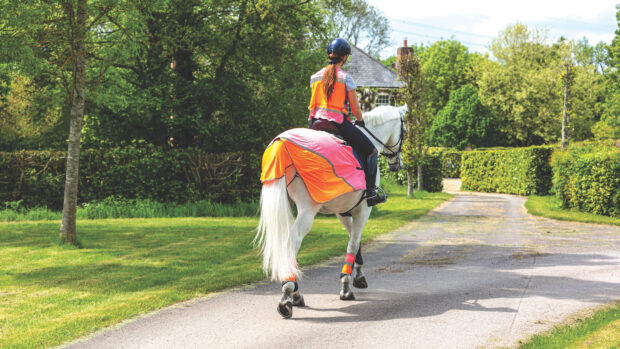The National Equine Database (NED), which will hold data identifying every equine in Britain, is moving closer to becoming a reality.
The joint initiative by Defra and the British Equestrian Federation (BEF) is set to be handed over to a tender-winning company by the end of next month. A test database will be up and running by December 2004, with a fully operational online data warehouse available from May or June next year.
Passport Issuing Organisations (PIOs) will provide mandated data, including identification information, while the competition disciplines (CDs) and breed societies will supply, on a voluntary basis, information such as competition, evaluation and grading results.
The competition and breeding information is what will make the electronic database invaluable to breeders and buyers, says Graham Suggett, BEF Director of Breeding.
“The most important thing is to highlight that this isn’t just Defra demanding information from the equine world. It’s a very positive and exciting scheme which will provide an incredible service for the general public,” explains Suggett.
There have been concerns that some CDs and breed societies may fail to provide the voluntary information, and there is still a question mark hanging over some organisations, such as the BSJA, who say the jury is still out. But Suggett is optimistic that even those who are sceptical about the database will be persuaded to take part.
“I’ve had positive vibes from everyone I have spoken to in the industry,” he continues. “We haven’t got everyone on board yet, but over the next weeks and months, we will be talking to all the CDs and breed societies to try and win them all over, heart and soul.”
He adds: “No one can hold this scheme to ransom. The basic data which will be held in the database is mandatory, and only the voluntary information which we are asking breed societies and CDs to provide could be withheld.”
Defra is funding the initial capital costs, and the project will be self-funding after the envisaged start-up period of two years. However, as the government will need information from the database for enforcement of equine passport regulations, as well as disease control and surveillance, Defra will pay a percentage of the ongoing maintenance and development costs thereafter. People using the online database will generate further funding.
Graham Suggett says: “Providing that the PIOs and CDs provide data so that we have a comprehensive database with validated information, I am confident that we can make this into a going concern with running profit.”



